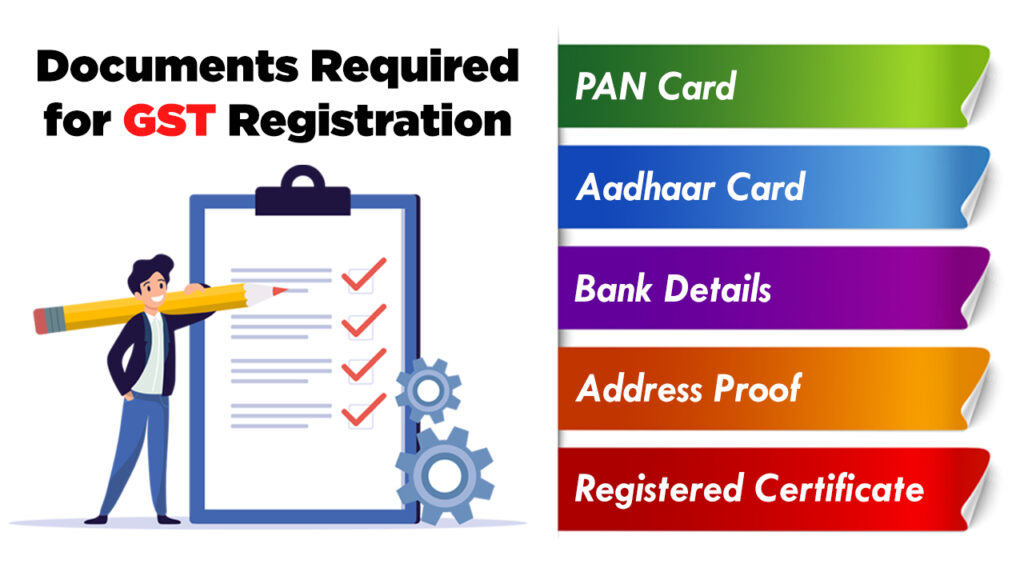Improving Your Singapore GST Registration: A Thorough Method
Improving Your Singapore GST Registration: A Thorough Method
Blog Article
The Ultimate Guide to Streamlining the GST Enrollment Process and Needs for Local Business Owners

Recognizing GST Fundamentals
To comprehend the fundamentals of the Item and Solutions Tax (GST) system, little service owners must initially understand its underlying effects and principles. Under the GST regime, businesses are called for to register and accumulate tax on part of the federal government, making sure transparency and conformity.
One of the key principles of GST is input tax obligation credit rating, which permits organizations to assert debt for tax obligations paid on their acquisitions. Recognizing these basic principles is important for little organization owners to navigate the complexities of the GST system and make sure conformity with the law.
Qualification Requirements for Registration
Having established a fundamental understanding of GST concepts, small company owners need to now meet details eligibility requirements to wage the enrollment procedure. In India, entities took part in the supply of products or services with an annual accumulation turnover exceeding Rs. 40 lakhs (Rs. 10 lakhs for unique classification states) are required to register for GST. Additionally, certain companies such as those involved in inter-state supply of goods, informal taxed persons, and those needed to pay tax under the reverse fee mechanism need to sign up for GST irrespective of their turnover. Businesses that were registered under the previous tax regimen (BARREL, service tax, etc) are likewise mandated to register under GST. Farming organizations that just provide produce out of key production are exempt from GST registration. It is important for local business owner to carefully evaluate their eligibility based on these criteria to ensure conformity with the regulation and avoid any type of fines for non-compliance.
Documents Required for GST Enrollment

Simplified Registration Refine Steps
Adhering to the collection and verification of the requisite records, the registration process for GST can be browsed with a collection of streamlined actions created to help with effective conformity for tiny business owners. The initial step involves checking out the GST website and selecting the 'New Enrollment' option. Ultimately, the applicant needs to complete Part A of the GST REG-01 form with details such as frying pan, mobile number, and e-mail address to get an OTP for verification. Once the OTP is gotten and gotten in, a Momentary Recommendation Number (TRN) is generated for further proceedings. The next step requires moved here filling in Part B of the form with necessary organization information, submitting sustaining documents, and completing the confirmation process utilizing DSC or EVC. Ultimately, upon effective confirmation, an Application Recommendation Number (ARN) is released, indicating the completion of the GST enrollment process. By complying with these simplified actions, small company owners can successfully register for GST and make certain conformity with tax regulations.
Tips for Ensuring Compliance
To maintain regulatory adherence and operational honesty, diligent oversight and aggressive measures are crucial in ensuring conformity with GST needs for small company owners. Little business proprietors should remain upgraded with GST policies, submitting due dates, and any type of modifications in tax obligation rates to prevent fines and keep a great standing with tax authorities. Going to GST recognition workshops or training programs can enhance understanding and conformity with GST laws, eventually benefiting the service in the long run.
Conclusion
In conclusion, tiny company proprietors should comprehend the fundamentals of GST, satisfy the eligibility criteria, gather required documents, and comply with the streamlined enrollment process steps to ensure compliance. By streamlining the GST enrollment process and demands, small company owners can stay clear of penalties and run their organizations smoothly within the legal structure - Singapore GST Registration. It is essential for tiny organization proprietors to remain informed and compliant with GST policies to maintain an effective business operation
Little service proprietors looking for GST enrollment should guarantee they gather and send the essential records to complete the enrollment procedure effectively. The documents needed for GST enrollment typically consist of evidence of organization enrollment or incorporation, PAN (Long-term Account Number) card of the company entity, identification and address proof of the promoters/partners/directors, pictures, address proof of the area of business, financial institution account statements click here for more or terminated cheques, and authorization types. Going to GST recognition workshops or training programs can enhance understanding and compliance with GST guidelines, inevitably profiting the business in the long run.
By streamlining the GST enrollment procedure and demands, little business owners can stay clear of fines and operate their services efficiently within the legal structure. It is vital for small company proprietors to stay educated and compliant with GST guidelines to maintain a successful organization procedure.
Report this page